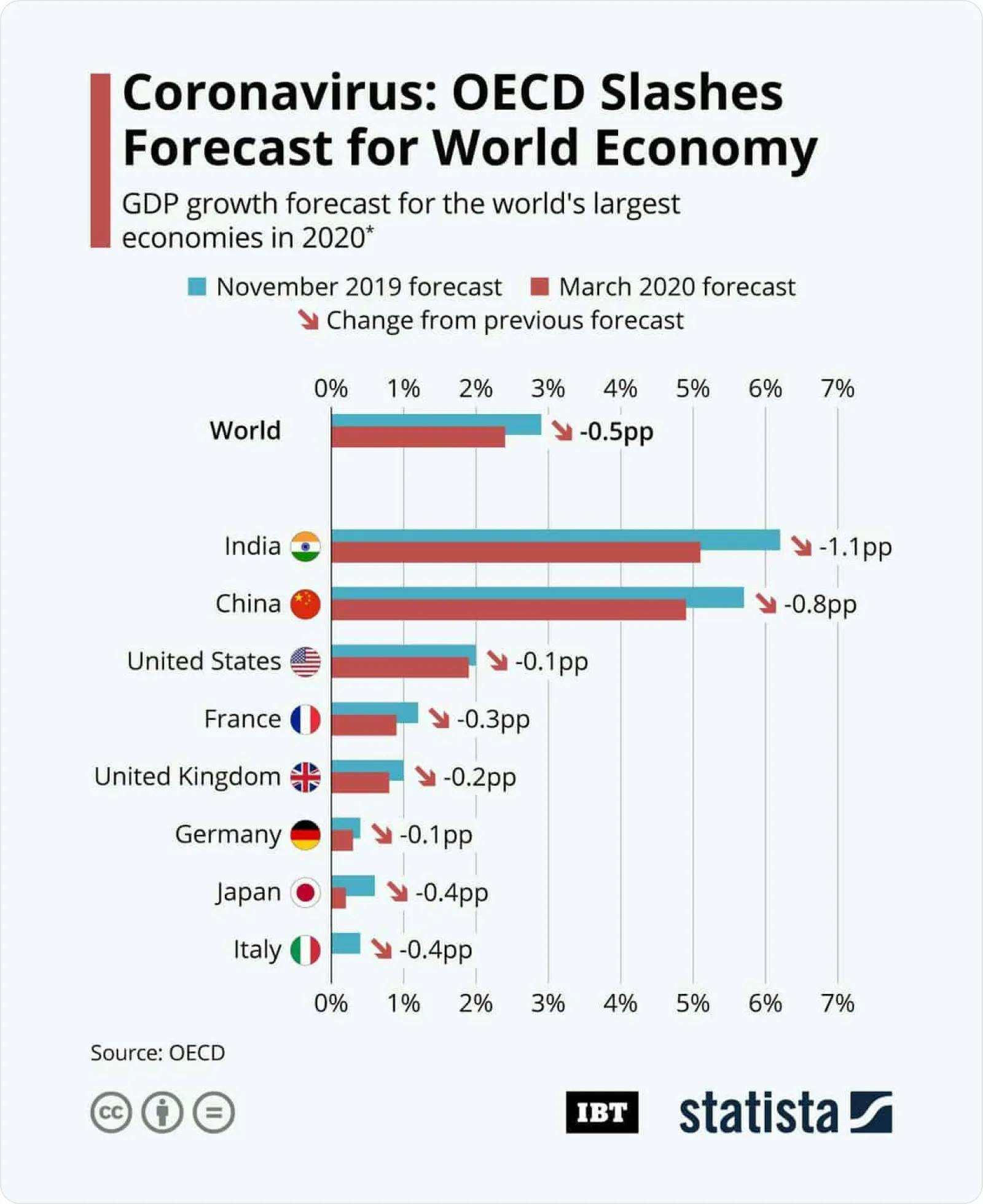Please note: This post contains affiliate links and we may receive a commission if you make a purchase using these links.
TABLE OF CONTENTS
We live in a global economy, so when a global crisis — like a pandemic — hits, the repercussions are felt in every corner of our world. For business owners, especially those who operate internationally or employ foreign workers, the uncertainty brought about by COVID-19 can feel overwhelming.
It is true that all businesses will need to be agile during this time of upheaval if they want to survive. Governments around the world are stepping in to give aid to their economies and help struggling companies.
In the U.S., changes to our tax system are being implemented to offer protections to both individuals and businesses. Here’s what you need to know to navigate this unprecedented season.

Filing Deadline Extensions
The virus hit the U.S. just as we were beginning to ramp up for tax season. With citizens being encouraged to self-quarantine and entire cities going into government-mandated shutdowns, worries grew about the possibility of filing taxes before the April 15 deadline. On March 20, 2020, U.S. Treasury Secretary Steve Mnuchin announced that the IRS has extended the tax filing deadline by 90 days, to July 15.
IRS Payments Deferred
If your business’s taxes have already been filed and you find you owe, you may be feeling anxious — especially if you’re feeling the economic impact of the pandemic. The IRS is now allowing both individuals and businesses to defer payments — up to $10 million for corporations — for 90 days.
Tax Credit for Small Employers
In March 2020, President Trump signed the Families First Coronavirus Response Act, the first-of-its-kind pandemic relief bill. The bill requires businesses with fewer than 500 employees to provide paid leave benefits throughout the crisis. It also lays out tax breaks and credits for business owners to protect their businesses during this time.

What If I Employ International or Non-Resident Aliens?
Sometimes, a worldwide economy can come with a whole world of headaches. Add in a global pandemic and many U.S. economic hubs in lockdown, and it’s no wonder you’re feeling stressed. You may not have all the answers, but there are measures you can take to stay on top of this evolving situation.
- First, breathe deep. Our government and many others are working to ensure the economy takes as little damage as possible. This is the time to take control of what you can, and let go of what you can’t.
- Stay up to date on what other countries are doing. Just as the IRS has made major changes to this year’s tax filing process, many other countries are doing the same. If you work with or employ citizens of other nations, find out how their governments are handling the crisis.
- Stay on schedule. If you’re able, carry on with business management operations as usual. The adjustments made by the IRS are a protection for individuals and businesses, but shouldn’t be considered an easy out. If possible, file taxes as normal and make sure your employees have what they need, should they choose to file before April 15. For international employees or non-resident aliens, that includes the W-8BEN. Here’s what you need to know:
What Is a W-8BEN?
If you have an LLC or other business entity that employs or pays individuals from other countries, you’ll need to send them a W-8BEN form.
“A W-8BEN is necessary to establish a foreign person’s withholding tax rate,” says Logan Allec, a CPA and founder of Money Done Right. Individuals need to fill one out to establish beneficial ownership and foreign status. It’s used to claim any income tax treaty benefits that have to do with income outside of compensation for personal services.
As Allec explains, typically, a U.S. company that pays a foreign person doing business in the United States must withhold 30% of any payment made to that individual.
Why Is the W-8 Form Necessary?
There are many types of W-8 forms, all relating to foreign employees and non-resident aliens on payroll.
These forms are used mainly for employees from other countries, but they also apply if you have a business partnership with someone who lives outside the U.S. This means you’ll need to withhold tax on their distributive share of their taxable income. Make sure to request the form before making a payment; you’ll need it before you file your taxes.
If a foreign business doesn’t obtain a valid W-8 form and doesn’t withhold as required, they might be taxed at the 30 percent rate under Chapter 3 or 4, or at the 28 percent backup withholding rate that’s under section 3406. What’s more, they also might be dinged with penalties and interest for not complying.
Requesting a W-8BEN Form
W-8BEN forms are used to certify that foreign individuals — not businesses — have been paid with the appropriate withholding rate. You can send a copy of the form to your non-resident alien employees, but they’ll need to fill it out themselves.
Recently, a scam was uncovered in which W-8BEN forms were being sent out to taxpayers, urgently requesting their tax information. You can help lessen the impact of the scam by warning your employees about it, and letting them know that forms will always come directly from you — not a third party.
Another thing to keep in mind: W-8BEN forms do not need to be sent to the IRS. Let your employees know they should fill out the form, sign it and submit it back to you, the U.S. payor.
Filing a W-8BEN Form
A business outside the U.S. needing to file a W-8 form will need to download a W-8BEN form and fill it out accordingly. If the foreign business can link up the payment with a W-8 form, they might be able to withhold at a reduced rate or qualify for an exemption from withholding altogether.
If you have questions specific to your situation, you’ll want to talk to a tax professional. Considering the current situation in the U.S., it may be difficult to find time to talk to a trusted CPA or advisor. While we wait to see all the implications of the pandemic, we’re here to help. Get ready now, so once the crisis passes, you’ll be prepared to get back to business as usual. Bizee’s team of tax experts is here to answer your questions during this difficult time.
like what you’re reading?
Get Fresh Monthly Tips to Start & Grow Your LLC




